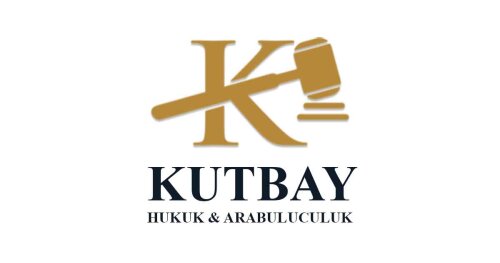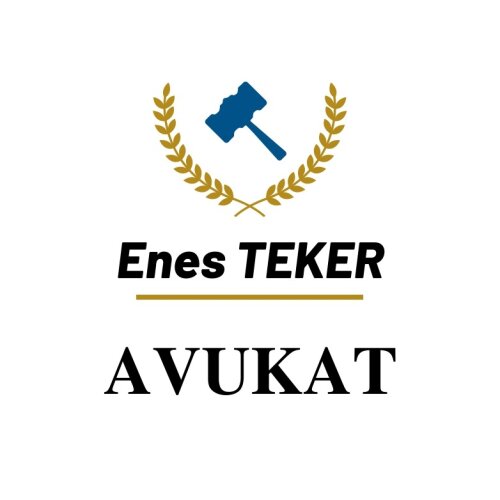Best Collaborative Law Lawyers in Turkey
Share your needs with us, get contacted by law firms.
Free. Takes 2 min.
Free Guide to Hiring a Family Lawyer
Or refine your search by selecting a city:
List of the best lawyers in Turkey
About Collaborative Law in Turkey
Collaborative Law is a legal process focused on resolving disputes outside of court by fostering cooperation between parties. In Turkey, this approach is gaining attention as it promotes amicable settlements, reducing the emotional and financial costs of litigation. Collaborative Law is often applied in family law cases, such as divorces and child custody disputes, but its principles can also be extended to other civil disagreements.
Why You May Need a Lawyer
Seeking legal advice in Collaborative Law is essential to ensure all parties understand their rights and obligations. Common situations where legal help may be necessary include:
- Divorce and separation agreements
- Child custody and support arrangements
- Property settlement negotiations
- Business disputes involving partners aiming to maintain a working relationship
- Civil disputes where both parties prefer a non-adversarial resolution
A lawyer experienced in Collaborative Law can guide negotiations, draft agreements, and ensure that the collaborative process remains constructive and legally sound.
Local Laws Overview
Turkey's legal system provides a supportive framework for the application of Collaborative Law principles. Key aspects include:
- Turkish Civil Code: Governs family and contractual disputes, providing a foundation for collaborative resolutions.
- The Mediation Act: Encourages dispute resolution through mediation, aligning with collaborative law's goals.
- Law on Legal Profession: Outlines the ethical obligations of lawyers participating in collaborative law to ensure fairness and confidentiality.
- Collaborative agreements must comply with local laws to be enforceable, highlighting the importance of legal guidance.
Frequently Asked Questions
What is the main goal of Collaborative Law?
Collaborative Law aims to resolve disputes amicably without litigation, focusing on cooperation and mutual benefit.
Can Collaborative Law be used for any type of dispute?
While commonly used in family law, Collaborative Law can be applied to various civil disputes that benefit from a cooperative approach.
Is a collaborative agreement legally binding in Turkey?
Yes, if the agreement is consistent with Turkish laws and both parties have received independent legal advice, it can be binding.
What happens if the collaborative process fails?
If the process doesn't result in an agreement, parties may pursue other dispute resolutions, such as mediation or litigation.
Do both parties need their own lawyers?
Yes, each party typically retains their own lawyer to ensure independent legal advice and a balanced negotiation process.
How long does the collaborative process take?
The timeline varies depending on the complexity of the issues and willingness of the parties to cooperate, often shorter than litigation.
Can Collaborative Law save money?
Potentially, as it often reduces court fees and expedites resolution, but costs can vary based on case complexity.
Is the collaborative process confidential?
Yes, confidentiality is a key principle, supporting open dialogue and trust between parties.
What role do legal professionals play in Collaborative Law?
Lawyers facilitate negotiation, advise clients, draft agreements, and ensure adherence to legal standards throughout the process.
How is Collaborative Law different from mediation?
While both aim for out-of-court resolutions, Collaborative Law involves legal representation for each party, unlike mediation where a neutral third-party facilitates the process.
Additional Resources
For those seeking more information or assistance, the following resources may be helpful:
- The Turkish Ministry of Justice: Offers guidance and resources on dispute resolution methods.
- Turkish Bar Associations: Provide access to legal professionals experienced in Collaborative Law.
- Mediation centers across Turkey: Offer support services that align with collaborative law principles.
Next Steps
If you require legal assistance in Collaborative Law, consider these steps:
- Identify your goals and priorities for the dispute resolution process.
- Consult a lawyer with experience in Collaborative Law to discuss your case specifics.
- Gather any relevant documents and information to aid in the negotiation process.
- Prepare for open and honest communication with the other party to facilitate a successful collaborative process.
Engaging in Collaborative Law offers a constructive approach to resolving disputes, emphasizing cooperation, mutual respect, and practical solutions.
Lawzana helps you find the best lawyers and law firms in Turkey through a curated and pre-screened list of qualified legal professionals. Our platform offers rankings and detailed profiles of attorneys and law firms, allowing you to compare based on practice areas, including Collaborative Law, experience, and client feedback.
Each profile includes a description of the firm's areas of practice, client reviews, team members and partners, year of establishment, spoken languages, office locations, contact information, social media presence, and any published articles or resources. Most firms on our platform speak English and are experienced in both local and international legal matters.
Get a quote from top-rated law firms in Turkey — quickly, securely, and without unnecessary hassle.
Disclaimer:
The information provided on this page is for general informational purposes only and does not constitute legal advice. While we strive to ensure the accuracy and relevance of the content, legal information may change over time, and interpretations of the law can vary. You should always consult with a qualified legal professional for advice specific to your situation.
We disclaim all liability for actions taken or not taken based on the content of this page. If you believe any information is incorrect or outdated, please contact us, and we will review and update it where appropriate.
Browse collaborative law law firms by city in Turkey
Refine your search by selecting a city.
















